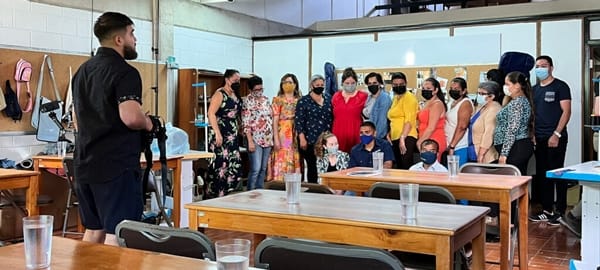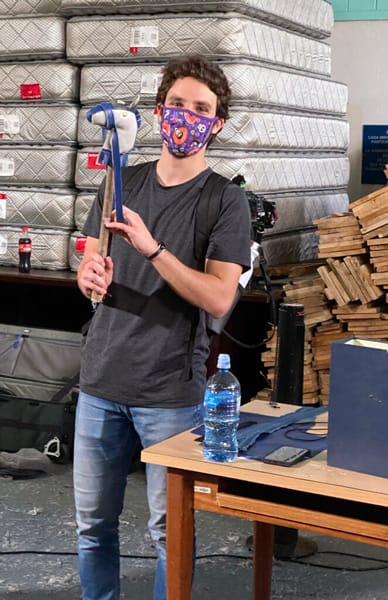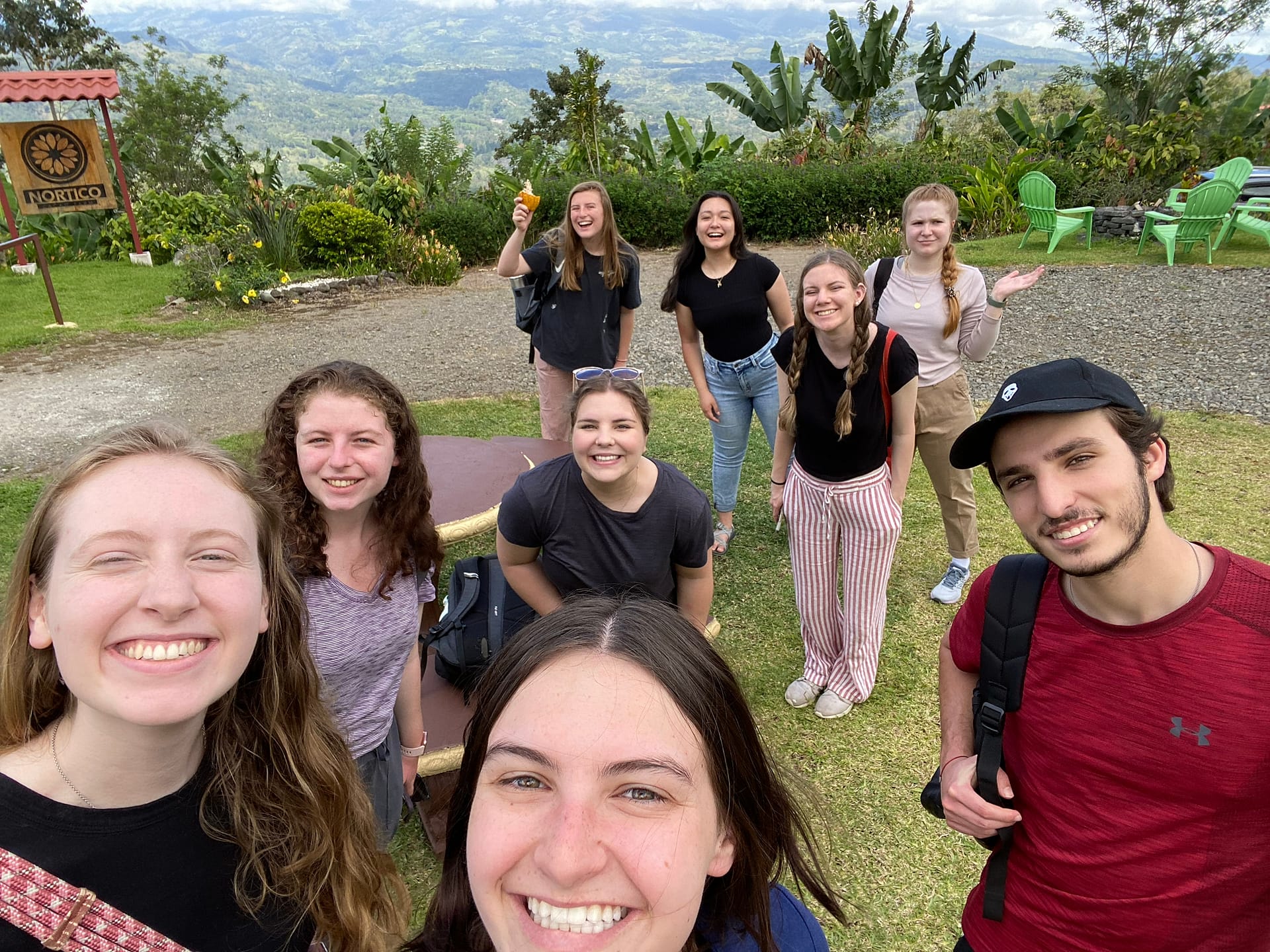Enlarge

What can you do with leather from old airplane seats? Students in ACU’s Social Enterprise Consulting class in the College of Business Administration are working with entrepreneurs in Costa Rica to find out, and in the process they are helping change lives.
Ten students traveled to Costa Rica over Spring Break to work with Centro Agronomico Tropical de Investigacion y Ensenanza, or CATIE, a regional center dedicated to research and graduate education in agriculture, and the management, conservation and sustainable use of natural resources.
Enlarge

This was the third year for the consulting class to partner with CATIE, said Dr. Sarah Easter (’06), assistant professor of management sciences, who along with Dr. Laura (Cleek ’88) Phillips, associate professor of management sciences, developed the hands-on course. The first two years, students focused on conducting marketing research and creating digital marketing content in support of a network of female entrepreneurs interested in offering experiential tourism opportunities as a means to provide sustainable livelihoods to their communities.
This year, the focus shifted to a new project through Southwest Airlines’ Repurpose with Purpose initiative. The airline donated approximately 18 tons of leather, with more to come, that was removed from planes being refurbished. It also provided a grant for equipment, a workshop and training in leather working.
The ACU students were tasked with profiling the needs of the micro entrepreneurs interested in being a part of the CATIE leatherworking program and offering a competitive market assessment for upcycled, sustainable leather products in North America.
Junior management major Diego Lozano Welsh was excited to work with the Costa Ricans as they began learning to create new leather goods from the recycled material. Though they started on small projects, such as making bracelets shaped like snakes to sell in tourist shops, the goal is to eventually construct larger items such as upscale handbags that would appeal to a North American market.
A native of Monterrey, Mexico, Welsh moved with his family to Coppell, Texas, when he was 7. As the only Spanish-speaking member of the class, he took on the informal role of translator. “I really enjoyed getting to hear their stories directly, and getting to know more about their culture and how they work,” he said.
The students were based in a town in central Costa Rica called Turrialba, but focused their work in the nearby village of Mallejones.
“Being a small area outside the main city meant they had a really close community, but they were losing a lot of people to the city,” Welsh said. “So they were looking for ways to bring more people to Mallejones and to keep people there by providing more opportunities.”
Enlarge

Welsh found the Costa Ricans’ attitudes inspiring.
“We talked to them about their goals and aspirations,” he said. “They focused a lot on being able to share a skill with the people of their community. Few of them were thinking about their own business possibilities, but rather saw this as an opportunity for the whole community. It was incredible to see that Christ-like care for the people on the margins. ”
The course was divided into three segments – classroom preparation for the trip, the Costa Rica experience, and development of consulting deliverables for the client afterward. Easter and Dr. Jennifer (Baker ’00) Golden, assistant professor of management sciences, accompanied the students on the Spring Break trip. After returning to campus, the students spent the rest of the semester assessing their experience and preparing a final consulting project for the client.
The project is in its beginning stages, so in future years ACU students will tackle other aspects of helping the entrepreneurs develop their leatherworking businesses. The benefits go both ways. The Costa Ricans are helping change their communities by teaching their neighbors new ways of financially supporting their families. And the ACU students are gaining hands-on, practical experience working on a substantial project for a real-life client located in an international context.
But a more intangible, and perhaps as valuable, outcome, are the relationships that form on a project like this.
All 10 classmates really bonded over the trip, Welch said. “When I run into any of them on campus now, I’m happy to see them and talk to them. A really fun part was to get to experience new things with a group of people, and something deeper has developed from that.”
Easter expressed a similar sentiment.
“I love getting to travel with students,” she said. “It affords the unique opportunity to get to know them in a much more personal setting than what is typically offered in a traditional classroom environment.”
She also enjoys seeing how their assumptions about the world are questioned. “It’s such a great experience for students to be able to expand their horizons and to consider using their skills in different ways as they are developing as future business leaders,” she said.
– Robin Saylor
July 5, 2022
